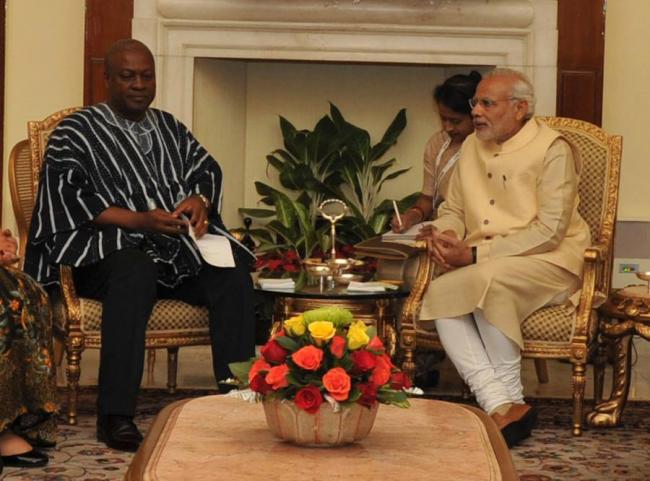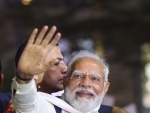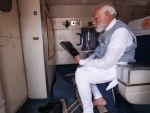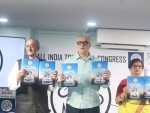
India-Africa and a sea of opportunities
With the biggest ever Indo-Africa Summit wrapping up, the third of its kind since the first held in 2008, for the Indian public Africa is finally coming alive as a committee of nations. With a whopping representation from all the 54 members of the African Union (AU) this was clearly a milestone summit in more ways than one. It is a significant leap in our fragmented impression of Africa that has so far been limited to Nelson Mandela and the anti-Apartheid Movement in South Africa 30 years ago, to the more recent Spring revolution in the Mediterranean; the most striking images being either the famine in Ethiopia, the murderous Boko Haram or the touristy delights of the Kenyan game sanctuaries. Much of that myopia has been dispelled with the recent summit exposing us to new realities of reinvigorating ties between India and Africa in terms of bilateral and multilateral relations in areas diplomatic, economic and military. And this is not just with the Anglophone nations of the south but also the Francophone ones in sub Saharan Africa and Lusophone nations like Angola and Mozambique.
The most definite role that Indo-Africa Forum is expected to play hereafter is as the resurgent voice from the third world. The summit is being seen as a serious endeavor to counter the growing Chinese dominance in Africa and its extorting machinations. China has invested heavily in infrastructure, energy and other natural resources to fuel its own economy. Even when Africa needs to benefit from its largesse, there are growing signs of exploitation as China strips Africa of its oil, coal, minerals and timber to sustain its own industries.
"Our partnership is not focused on an exploitative or extraction point of view, but is one that focuses on Africa's needs and India's strengths." Vikas Swarup, spokesman for the Indian Ministry of External Affairs, summed up India’s stand quite clearly. The idea of India trying to play a catch-up game with China, whose annual trade with Africa at $200 billion, three times larger than India, is grossly misplaced. India rightly wishes to capitalize on the economic slowdown in China and make its presence felt in Africa but by honing its soft strengths, which matches the current needs of Africa. To date, the focus at these summits has been on increasing the ties in areas like trade, investment, food security, information and communication technology (ICT), peace and security, and good governance. Africa wants India to play the role of an enabler, a capacity builder, and not as a participant in cash and carry activities like China. India hopes to align African priorities with India's activities and operate on the basis of its core strengths through diversity management, business cooperative ventures, human resource development, cultural knowledge, and academic interaction, capacity building and improving healthcare system by providing cheaper generic drugs, etc. India also intends to bolster its long-standing relationship with African security both in the east and west coast, be it in maritime domain or counter-terrorism. This will require huge structural reforms in India’s security sector but it is an imperative with China’s active role in “conflict resolution” in Africa and its deeper penetration in the African waters.
The joint resurgent voice also offers an opportunity for India and Africa to come together on several other global issues. At the World Trade Organization (WTO) ministerial meeting in Nairobi next month, India and Africa intend to take a joint stand seeking more freedom to subsidize and stockpile food to support its farmers and ensure people do not go hungry, which goes against the WTO rules on subsidies. India’s aspiration for a permanent seat on an expanded UN Security Council also matches South Africa’s desire to be considered for the same. While India seeks it on grounds that the Council must make changes in the Permanent 5 (P5) to reflect the new rising global power equations, for South Africa it is an issue of fundamental global justice. No African country currently has a permanent seat, despite the fact that the continent is home to more than 1-billion people. As long as India struggles with a weak currency it will face a P5 blackball, but with a strong support base in Africa, it can continue to make its presence felt.
Considering that much of India’s and Africa’s problems are similar they have already made tangible difference in various areas though South–South cooperation, people-to-people linkages, addressing common development challenges so far. African energy has been powering Indian industries and in African prosperity in turn offering a growing market for Indian products. One of the encouraging developments under IAFS-II was the formation of the India-Africa Business Council (IABC) in March 2012. The signing of a Tripartite Free Trade Agreement and the launch of negotiations for the creation of a Continental Free Trade Agreement in Africa will further stimulate trade and investment. Duty free access to Indian markets have improved India-Africa trade which has more than doubled in less than a decade with India as a major business investor in Africa today with 30 to 35 billion in investments. Though Airtel in the private sector, which operates in 17 African countries, is currently seeking to cut its losses, ONGC (our state run oil company), also operative in Africa, wants to buy $12 billion more in foreign assets over the next three years in Africa. India is also in talks with South Africa, a major coal supplier to India, to buy coal mines to feed its growing steel industry.
The private sectors can and must take a plunge but economists think the key push must come from small medium enterprises who can cumulatively transform the bilateral trade with Africa. Chambers of commerce, diplomatic missions and educational institutions will play an important role to take the India Africa dream forward. Another important mission will be to involve and activate the civil society actors and proactively assist in capacity building in this area, to help in transfer knowledge on democracy, conflict resolution. Along with business to business and a govt. to govt. camaraderie, which has been growing fast, people to people relationships, away from bureaucratic interventions, can bring in another successful model in this partnership.
India had committed $7.4 billion in concessional credit and $1.2 billion in grants since the first India-Africa Summit in 2008. It is creating 100 capacity building institutions, and developing infrastructure, public transport, clean energy, irrigation, agriculture and manufacturing capacity across Africa. A promise of $10 billion in new credit in addition to the above has been made now. In addition, India will offer grant aid of $600 million. Of that, $100 million will go towards a new India-Africa Development Fund and $10 million to an India-Africa Health Fund.
If these figures translate to mean anything it shows active and positive growth in Indian engagement in the African continent from which India stands to gain in terms of diplomatic, economic and military security.
The Dark Continent’s arrival into the limelight in India has been long overdue. Apart from sharing the Mahatma and the Indian Ocean, India and Africa have more similarities than with any other white nation. Together they may be the home to seven out ten poor people of the world but India and Africa are also among the fastest growing economies today, set to accrue a huge advantage from their alliance.
Support Our Journalism
We cannot do without you.. your contribution supports unbiased journalism
IBNS is not driven by any ism- not wokeism, not racism, not skewed secularism, not hyper right-wing or left liberal ideals, nor by any hardline religious beliefs or hyper nationalism. We want to serve you good old objective news, as they are. We do not judge or preach. We let people decide for themselves. We only try to present factual and well-sourced news.







